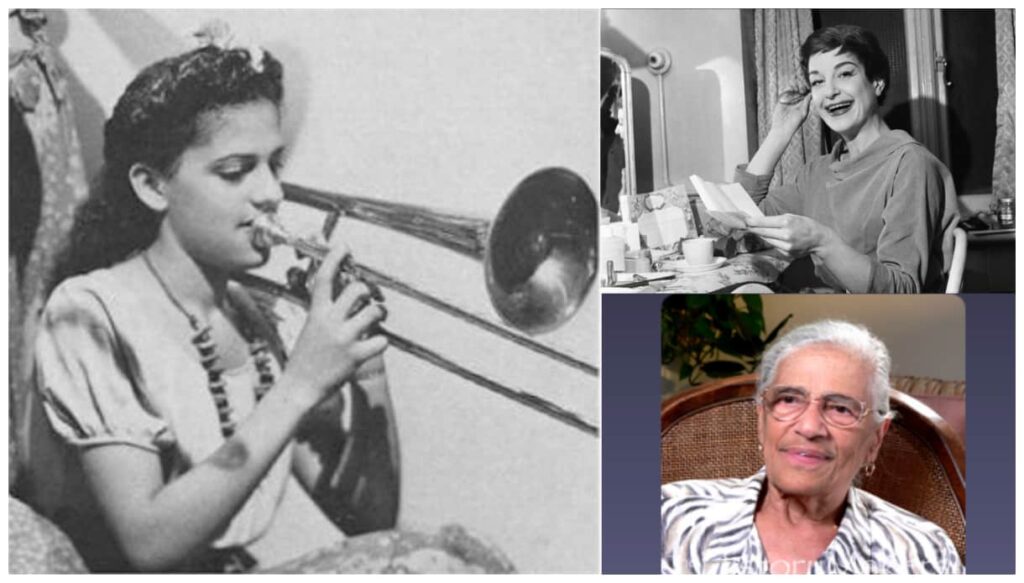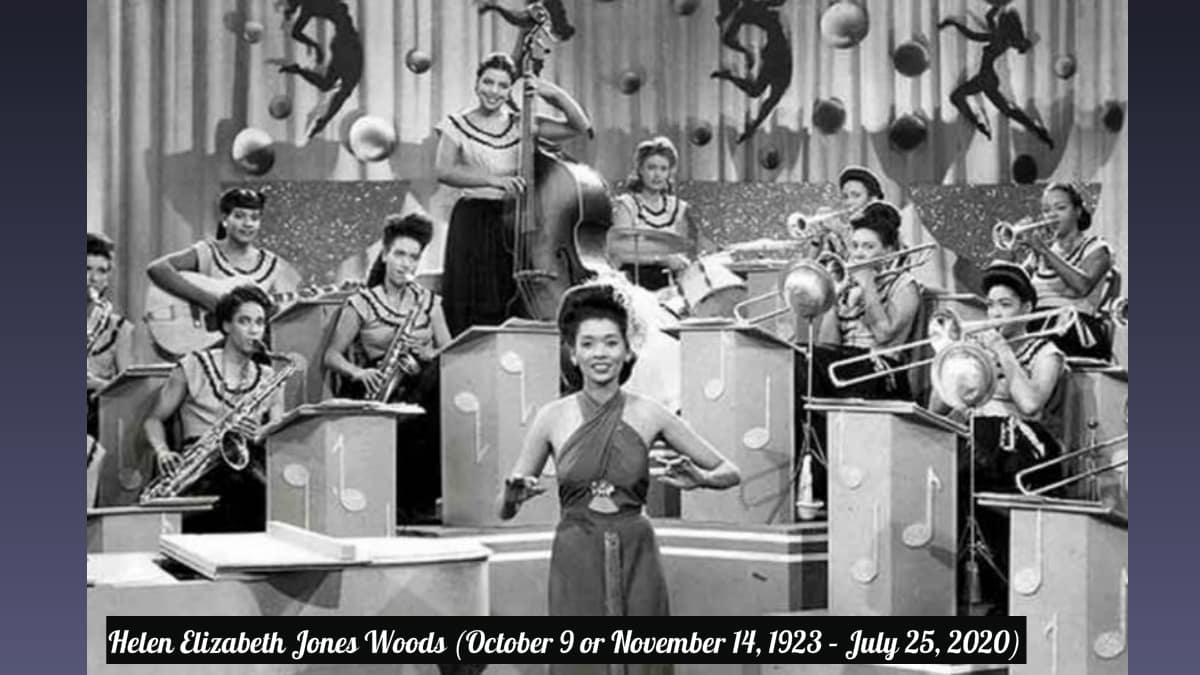Helen Jones Woods was an African-American jazz musician who toured the country in the 1930s and ’40s, including in the Jim Crow South. This touring could be the start of a familiar story of racism on the road. But Woods’ journey has some distinctive wrinkles.
Woods played trombone in the International Sweethearts of Rhythm, an all-female, multiracial ensemble so unusual that the white members had to wear blackface in the South to avoid trouble.
When the group split up in 1949 — bruised by the road and feeling exploited financially — Woods found the classical world no less racist. After her first performance with the Omaha Symphony, her father, who did not share her light complexion, picked her up, tipping off the orchestra that she was not white.
“They fired her,” said Woods’ daughter Cathy Hughes, a founder and chairperson of Urban One, a media company that focuses on Black culture. “She never touched her horn again.”
Helen Jones Woods died on July 25 of the coronavirus in Sarasota, Florida, her daughter. She was 96.
Helen Elizabeth Jones was born on either Oct. 9 or Nov. 14, 1923 (family documents differ), and spent some of her earliest days in an orphanage for white children in Meridian, Mississippi. Upon realizing she was not white, the orphanage no longer wanted her, and she got adopted by Dr. Laurence Clifton Jones and his wife, Grace. Jones was the founder of the Piney Woods Country Life School (now the Piney Woods School), a Black boarding school; Jones’ grandmother, Hughes said, lectured with Frederick Douglass and may have worked on the Underground Railroad with Harriet Tubman.

Piney Woods had a strong musical bent and was the birthplace of the gospel group. The Five Blind Boys of Mississippi. To raise money for the school, Grace Jones started male and female quartets called the Cotton Blossom Singers, precursors to the International Sweethearts.
From an early age, Helen Jones Woods was fascinated by the slide motion of the trombone. She played in the girls’ band at Piney Woods, and 13 or 14 became an original member of the Swinging Rays of Rhythm, a school band modeled on a white all-female group popular on the radio the time.
The Rays were a hit. They lived on a dollar a day each for food, plus a dollar a week allowance, and they toured in two school buses that had been retrofitted — one with bunk beds, the other as a mobile classroom.
When they met a smooth-talking manager in Washington who promised the girls diamond rings, if they would abandon the school and turn pro, they recruited the buses. They fled to Virginia, renaming themselves the International Sweethearts of Rhythm, a nod to the musicians’ diverse races and nationalities.
Success followed: performances at the Apollo Theater in New York and Wrigley Field in Chicago; bills with Dizzy Gillespie, Billie Holiday, and Ella Fitzgerald. DownBeat magazine in 1944 called them “America’s number one all-female orchestra.”
Despite their popularity, money never seemed to flow their way, nor diamond rings.
“The girls were ripped off, arrested, harassed, and bullied,” Hughes said. “But they loved the music, so they continued.”
They recorded only a few songs, but recordings of some of their radio performances have survived, and they were the subject of a short documentary film made in 1986.
In the late 1940s, Helen Jones met and married William Alfred Woods. They made a home in Omaha and had four children. In addition to Hughes, Woods is survived by her sons, William and Robert, and another daughter, Jacquelyn Marie Woods Williams.
The couple separated but never divorced. Woods died at 45.
After leaving the Omaha orchestra, Woods returned to school, studying at Creighton University and the University of Nebraska, and then worked for 30 years as a registered nurse and social worker.
She never returned to music. When the surviving members of the International Sweethearts gave a reunion concert in 1980, their first performance in 30 years, she could not bring herself to take part, Hughes said. Instead, she said, “She just started crying and walked out of the ballroom.”
At a 2011 discussion organized by the Smithsonian Institution’s National Museum of American History, Woods was asked whether the hard work of being a musician was worthwhile. She resisted romanticizing a tough past.
“I don’t know if it paid off,” she said. “I didn’t get enough money.”
But her music, however few its artifacts, carries on.







